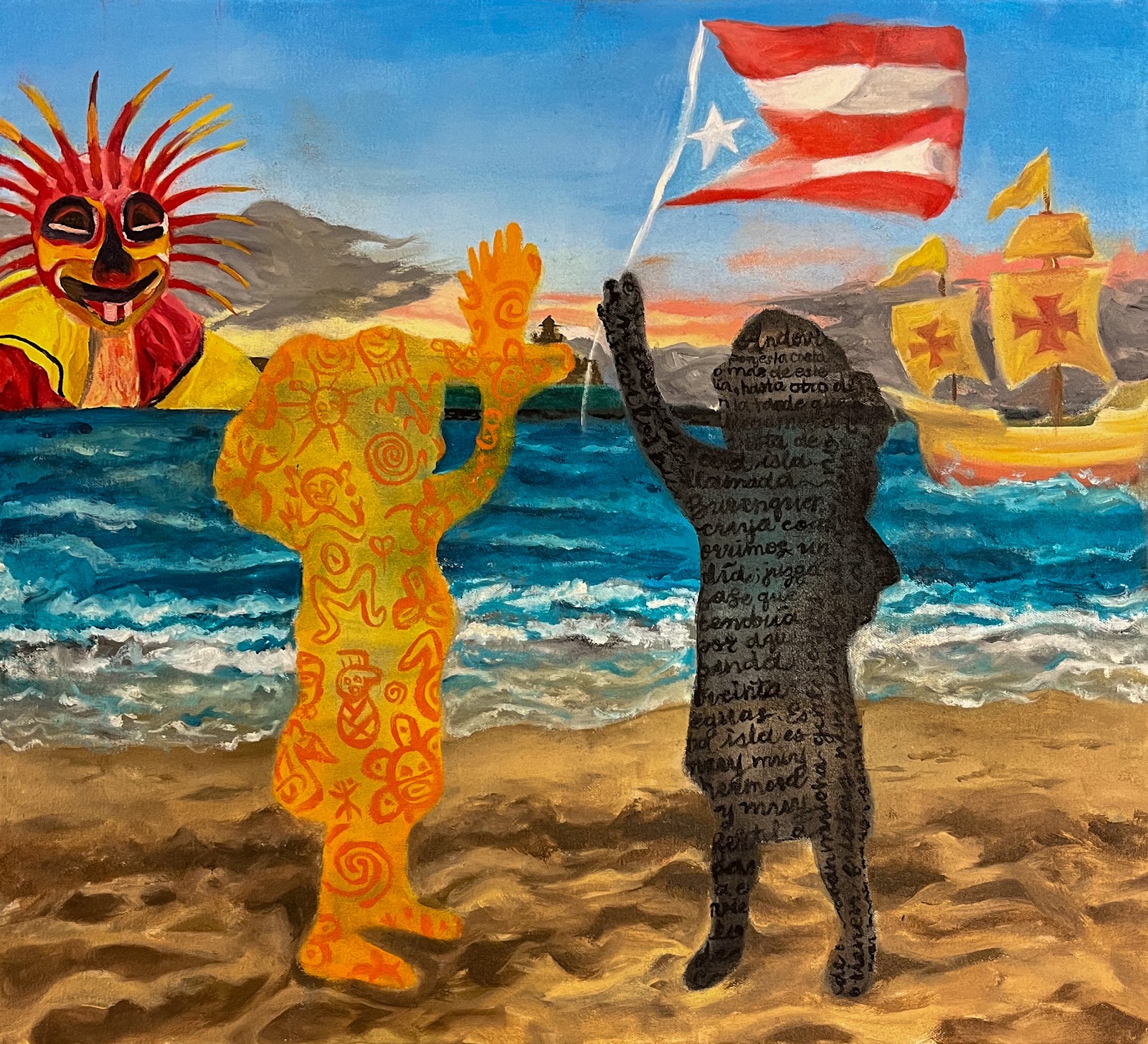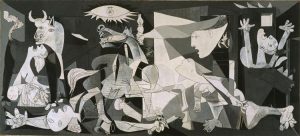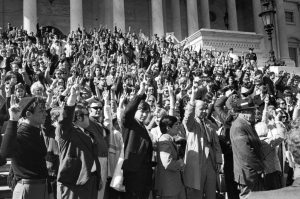Colonización. Colonization. As a young Puerto Rican woman, it’s a concept that permeates every aspect of my life. It’s visible in the landscape of the city where I grew up, where colonial Spanish fortresses serve as a background for everyday life. It’s also what ultimately created the Puerto Rican person: the mixture of Spanish, African, and indigenous Taíno roots is within all of us, easily traceable by DNA and cultural practices.
I’m constantly grappling with this concept of “Puerto Rican-ness,” because it isn’t something that can be easily defined. I’m not just White or just Black. I call myself a native, but that isn’t quite accurate either; there are barely any physical remnants of the native indigenous population, let alone cultural ones. This brings my identity into question: how can I represent all of these radically different histories and cultures, if I’m neither one nor the other? Clearly, Puerto Rican identity is not something that can be encased in a box. It seems the best approach to defining it is to talk about it as an effect of colonization.
I, Rocío Isabel Colón Cotto, am tangible proof of the consequences of colonization. I might bear the last name of Cristobal Colón, or Christopher Columbus, but my very existence embodies this complex web of exchange between people, races, and ideas. My curly hair speaks to my African ancestors, while my speech gives glimpses into my taíno heritage. Thus, embracing the multiple unique identities of my cultural heritage as my own becomes the first step to figuring out what it means to be a young, Puerto Rican woman.




